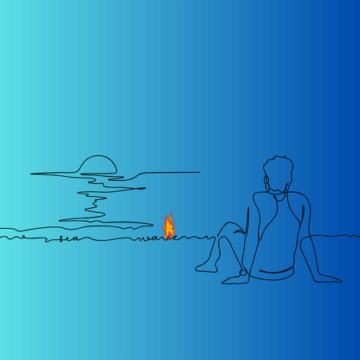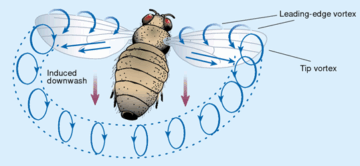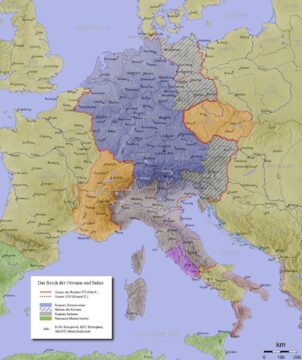by Alizah Holstein

Once upon a time, summer meant windows thrown open, midnight breezes, the cooing of doves at dawn. Now, though, the panes have fallen. My family has at long last joined the approximately ninety percent of American households with access to air conditioning. Statistically speaking, it’s possible we had already joined that number: for the past four years, window units have cooled two of our three bedrooms when necessary. But the kitchen remained hot, the dining room sticky, the third-floor offices all but unusable for four or five months of the year.
I will not mince words: after years of resisting systemic cooling, I concede it’s a profound relief. I’m comfortable, sleeping well, and feeling productive. Just days into our new arrangement, I already regard my life as divided into two distinct eras: BCE (Before Conditioning Era) and CE (Conditioning Era). In the period from 50 BCE, when I was born, to approximately 20 BCE, summer temperatures in New England and the mid-Atlantic were often hot but rarely unbearable. But from 20 BCE on, summer days, and even autumn ones, have grown hotter and more humid. Now even nights can be tough to bear. When I sauntered out at 7:45 one morning last month to walk my dog, the temperature was 80 degrees Fahrenheit with 92% humidity—a combination one might resent even at the height of day. But of course, it was just the start of it.
And yet for all its pleasures, I partake in this new era with some misgivings. In part my hesitation is personal because some things I enjoy about summer are inevitably now less noticeable to me: a sudden gust of wind; the smell of grass; the sounds of children playing outside. As for my own kids, I don’t want them to grow up oblivious to the outside world as they move between one anodyne climate-controlled indoor space and another. Nor do I believe it’s in their best interest to come to expect comfort at all times. But I worry that I, too, might come to expect it. Read more »


 A South Asian person I dated for a year complained to me one day that I was too Iranian. He said a lot of things I did had that tint and flavor to them. We were eating lunch that I had prepared, which consisted of rice and chicken, and I had a plate of fresh herbs that accompanies most meals in Iran. As he was enjoying his meal, he continued that he had never met someone as still ingrained in their own culture as I was. When I pressed for details, he said things like having pistachios and sweets at home to go with tea, or serving fruit for dessert. The irony of it all is that he loved it when I cooked Persian dishes and enjoyed them when I sent him home with leftovers, and really appreciated the snacks I had in my house to accompany his 5 pm scotch.
A South Asian person I dated for a year complained to me one day that I was too Iranian. He said a lot of things I did had that tint and flavor to them. We were eating lunch that I had prepared, which consisted of rice and chicken, and I had a plate of fresh herbs that accompanies most meals in Iran. As he was enjoying his meal, he continued that he had never met someone as still ingrained in their own culture as I was. When I pressed for details, he said things like having pistachios and sweets at home to go with tea, or serving fruit for dessert. The irony of it all is that he loved it when I cooked Persian dishes and enjoyed them when I sent him home with leftovers, and really appreciated the snacks I had in my house to accompany his 5 pm scotch.
 The 2020 documentary
The 2020 documentary 


 When Representative (now House Speaker) Mike Johnson
When Representative (now House Speaker) Mike Johnson 




 The stock market, social media, award contests, product reviews, beauty contests, social media, fashion styles, job applications, award contests, product reviews, and even elections, don’t seem to belong in the same crowded sentence. What do they have in common? Before I get there, a couple of abstract analogues to pave the way.
The stock market, social media, award contests, product reviews, beauty contests, social media, fashion styles, job applications, award contests, product reviews, and even elections, don’t seem to belong in the same crowded sentence. What do they have in common? Before I get there, a couple of abstract analogues to pave the way.


